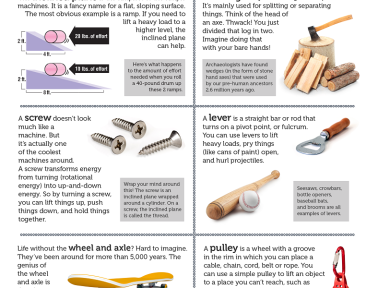I’ve been back in the public schools lately, as my oldest son is now a kindergartener. It struck me right away that what I was doing with first graders just seven years ago is now considered kindergarten territory. As was mentioned in the article I linked to previously by Alicia Bayer, “In America, we currently have this idea that our children are struggling academically so the answer lies in pushing them more and more, at earlier and earlier ages… If our children are struggling academically, it does not make sense to make them do more of the same things that are failing them and from a younger age.”
The Gesell Institute of Human Development recently held a press conference to discuss a study they conducted to look at this shift in early education expectations. Noting that developmental norms established through research in the 1940’s by the institute’s namesake and child development pioneer, Dr. Arnold Gesell, strongly conflict with expectations now presented to the average kindergartener, the institute decided to examine whether or not the development of the average child has actually sped up. After a three-year study involving about 1300 3-6 year olds from 53 schools in 23 states from all points on the demographic spectrum the results show that even after 70 years, what is developmentally appropriate for a child remains the same.
Gesell Institute’s Executive Director, Dr. Marcy Guddemi explained during her formal announcement of this study, that “Children have sets of abilities that are definitively bound by their developmental level. These developmental abilities of a child are directly related to their success at processing the information given to them and to perform the tasks asked of them.” This means that regardless of state standards and curriculum requirements, if a child has not had adequate time and experience to develop the requisite abilities, her chances for success are slim. Unfortunately while the pace of developmental growth has not changed, what is expected of these children certainly has. The problem is, legislation, school policies, and fancy textbooks won’t make children any more developmentally ready for it.
As Dr. David Daniel, psychology professor at James Madison University and managing editor of the journal Mind, Brain, and Education, stated in the Harvard Education Letter, “The four-year-old has a four-year-old brain and a six-year-old has a six-year-old brain. There are certain things connecting in a six-year-old brain that are still being worked on in the four-year-old brain.” When asked about the more rigorous coursework being presented to children at younger and younger ages he replies, “They can be teaching it, but the question is: Is the child learning it?”
In the same article, Dr. Guddemi points out that children may actually appear to learn some of these tasks. But points out that this “learning” is actually “training”. Because they are not developmentally ready, the children haven’t built the appropriate connections for meaningful knowledge. Referring to these as “splinter skills” she says, “You can train them, but the knowledge and understanding—the true learning—has not happened. Our country has this hang up that if the child can perform, that they know.”
It’s similar to forcing a bulb to bloom indoors. Natural laws prevent flowers from blooming in the winter, but if we really want to, there are ways we can urge a bulb and create conditions that will allow it to bloom indoors in the middle of December. If we take that bulb back to its natural setting however, it would quickly die in the frosty air. Just because we can get it to bloom does not change its natural timetable.
Likewise, just because we can get children to perform tasks at earlier ages, does not mean they have the natural capacity to maintain those skills and convert them to real knowledge in a natural setting. Additionally, and perhaps more tragically, those children who cannot be “trained” ahead of their natural schedule suffer the consequences, being labeled as “difficult” or “slow”. By the time they are naturally ready to develop skills on an appropriate developmental schedule, they have already been left behind. It seems in an effort to create more success we have only created more unnecessary failures.
Dr. Guddemi pointed out during the press conference that the current trend towards a “push-down” curriculum is not creating better test scores, rather according to recent studies it is causing children to have negative attitudes about school and to view themselves as “failures” as early as PreK. Additionally, expulsions for preschoolers have increased to a rate 4 times that of students in the K-12 grades. One has to wonder if the problem truly stems from child behavior, or if it is the environment and expectations (created by adults) that are truly inappropriate.
Test scores and expulsion rates are not the only indicators that this high-pressure system is not serving our children well. Recent reports also show that social and problem solving skills, critical to success in school as well as in the job market are not being fully developed. Skills like persistence, creativity, cooperation, and communication are being left by the wayside in an effort to produce higher test scores and reach benchmarks earlier. As Dr. Guddemi stated in the New Haven Register, “When policy-makers and school leaders don’t have access to the latest research about how children learn they can make mistakes that actually keep down the very test scores they are trying to enhance.”
Not to be misunderstood, The Gesell Institute is not against raising test scores. They simply believe that there is a right way to do it. That is, by working with the child’s natural developmental process rather than against it. The National Association of Elementary School Principals (NAESP) agrees with the Gesell Institute and has recently proposed that elementary principals be required to obtain professional development in the areas of child development and early learning. This is something that many of us would consider a logical requirement for anyone directing, planning, or supervising the education of young children.
The Gesell Institute recommends early childhood programs for children age 3 through grade 3 that emphasize experiences and exploration. Both of which quickly disappear from a worksheet-based classroom. The institute also emphasizes that these programs need to teach children to “negotiate and problem solve with peers, explore materials in creative ways, and engage in the work of making sense of their world alongside teachers who are experienced, patient and creative role models. Unfortunately, in an effort to close achievement gaps, both schools and parents endorse the “earlier is better myth,” believing that by “learning” academic skills earlier, developmental skills will follow. Gesell’s data proves the opposite – that developmental abilities must emerge before an academic curriculum has meaning for the child and that it stimulates a corresponding motivation to learn.”
In our nation’s effort to give our children more, we are essentially robbing them of what is most rightfully theirs: their childhood. What we know to be good and necessary for proper growth and development in the early childhood years is, in too many situations, being grossly ignored and dismissed. Unfortunately, this philosophy that earlier is better and that play and exploration is frivolous is actually edging out the development of necessary skills in exchange for an imitation of education. We as child advocates — parents and teachers — have to do our part to find that balance again.
Dr. Marcy Guddemi, Gesell Institute’s Executive Director would love to answer your questions about this study and the topic of developmentally appropriate practice. Comment here with your questions, and I will use those in an interview with Dr. Guddemi to be posted next week. (Please comment by Friday to ensure your question is considered.) What do you find most difficult about implementing developmentally appropriate practice? What challenges do you face in encouraging others to implement DAP? What aspects of the study left you scratching your head? Please further this discussion with your comments and questions!
You can also read more about Gesell’s study here:
Kid’s Haven’t Changed, Kindergarten Has— Harvard Education Letter
The Education of Educators — New Haven Register
Does Teaching Kids Earlier and Earlier Really Work? – New Haven Advocate
Study: Children Need Time to Develop – Teacher Magazine
Center photo by Anissa Thompson.
<!–
–>










